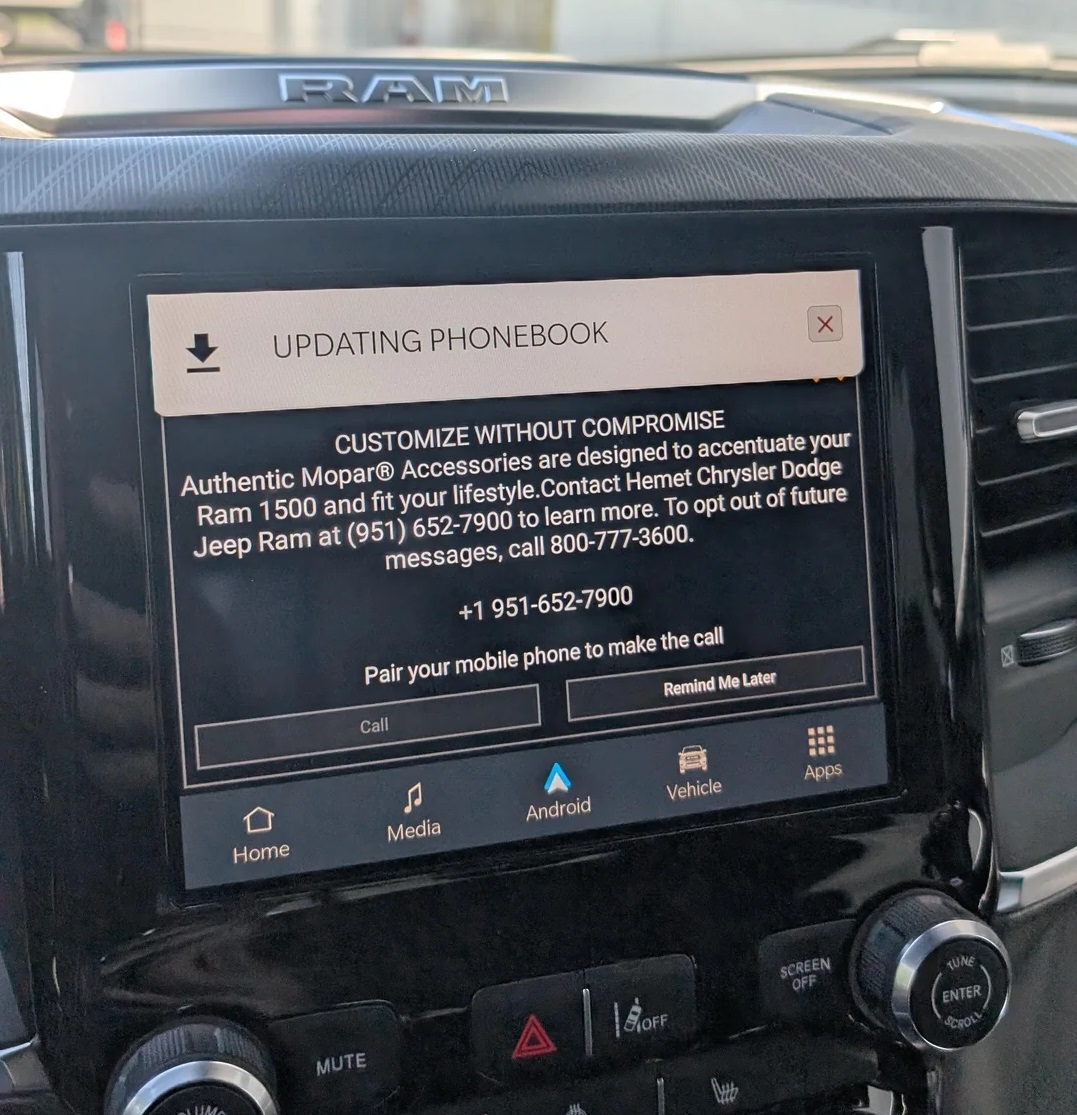Well folks, it finally happened. The screen in your pickup truck… your last bastion of peace from the chaos of unskippable advertisements… now plays popup ads. Not even subtle ones. We’re talking full-dash, head-unit-commandeering infomercial panels in your RAM 1500, like you’re driving a Times Square billboard on wheels.



The field that marketing companies truly excel at the most is advertising their own services. Researching the effectiveness of advertising is difficult because most of the information is presented by the marketing companies themselves. However, most scientific studies agree that advertising through environmental means is ineffective and sometimes can even be harmful to brands.
Marketing usually aims to take advantage of impulsive purchasing behaviour by inundating the potential purchasers environment with advertisement. However, this isn’t very effective, most people automatically filter these kinds of ads, or worse are actively annoyed by them. Effective advertising activates the buyers impulsive behavior by engaging with them emotionally, which is why ad space for podcasts and other types of para social relationships are more effective.
I’d say the vast majority of data scraped from personal devices are utilized as tools to market the idea of advertisement to vendors more than they are used to actually market products. Imo marketing is useless for most types of businesses, and is mostly a field of self perpetuating scam artist.
Apparently it’s mostly about familiarity. Even if we are annoyed at the time, we will often forget about it completely between then and shopping. By the time we are in the shop, we just have a vague sense of familiarity with the product. We instinctively buy the more familiar, as the “safer” option. It takes conscious effort to overcome this (which most people don’t have to spare).
In saturated markets, this leads to a zero sum situation. Every customer you get is stolen from a competitor. Apparently the tobacco companies actually loved the UK ban on tobacco advertising. Their ads were intended to counter the ads of their competitors. None of them were roping in new smokers at a high enough rate to matter. The only ones winning were the ad agencies.
Sounds like a perfect pitch to sell more ads. Like I said, I would hesitate to actually trust any statistical analysis of the effectiveness of advertising done by the same people wanting to sell more ads.
In a capitalist economy there’s just not a real motivation for researching advertising unless you are a marketing agency. So the vast majority of information is intrinsically biased.
I think it’s more that if you stop advertising, you start seeing a significant drop in sales. It’s an easy experiment to test.
The dark art is increasing sales via advertising. That’s where the marketing people pull off the real bullshit.
I agree that it seems most marketing firms are seemingly scamming businesses at this point. The internet is so saturated with absolute garbage ads that anyone buying ads must be expecting $0.001 return on the ad dollar.